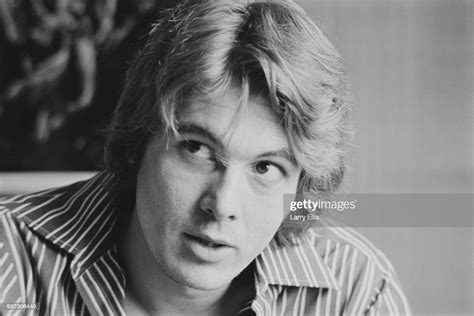A Quote by John Adams
Human nature itself is evermore an advocate for liberty. There is also in human nature a resentment of injury, and indignation against wrong. A love of truth and a veneration of virtue. These amiable passions, are the "latent spark" . . . If the people are capable of understanding, seeing and feeling the differences between true and false, right and wrong, virtue and vice, to what better principle can the friends of mankind apply than to the sense of this difference?
Quote Topics
Advocate
Against
Also
Amiable
Apply
Better
Between
Capable
Difference
Differences
Evermore
False
Feeling
Friends
Human
Human Nature
Indignation
Injury
Itself
Latent
Liberty
Love
Mankind
Nature
Passions
People
Principle
Resentment
Right
Right And Wrong
Seeing
Sense
Spark
Than
True
True And False
Truth
Understanding
Veneration
Vice
Virtue
Wrong
Related Quotes
The Idols of Tribe have their foundation in human nature itself, and in the tribe or race of men. For it is a false assertion that the sense of man is the measure of things. On the contrary, all perceptions as well of the sense as of the mind are according to the measure of the individual and not according to the measure of the universe. And the human understanding is like a false mirror, which, receiving rays irregularly, distorts and discolors the nature of things by mingling its own nature with it.
There is that in the soul of man which must respond to the highest in virtue. It may not respond at once. Human nature can easily be over-faced by examples too remote and austere. Moreover, human nature can easily deny God because the whole race has long been in rebellion against Him. Yet there is that in human nature which calls out to the supreme examples of virtue: owns, as it were, the intention of God who made it, and feels the unmistakable homesickness of the soul.
There are very few errors and false doctrines of which the beginning may not be traced up to unsound views about the corruption of human nature. Wrong views of the disease will always bring with them wrong views of the remedy. Wrong views of the corruption of human nature will always carry with them wrong views of the grand antidote and cure of that corruption.
A small knowledge of human nature will convince us, that, with far the greatest part of mankind, interest is the governing principle... Few men are capable of making a continual sacrifice of all views of private interest, or advantage, to the common good. It is vain to exclaim against the depravity of human nature on this account; the fact is so, the experience of every age and nation has proved it and we must in a great measure, change the constitution of man, before we can make it otherwise. No institution, not built on the presumptive truth of these maxims can succeed.
The loss of the religious understanding of the human condition—that Man is a fallen creature for whom virtue is necessary but never fully attainable—is a loss, not a gain, in true sophistication. The secular substitute—the belief in the perfection of life on earth by the endless extension of a choice of pleasures—is not merely callow by comparison but much less realistic in its understanding of human nature.
Hypocrisy itself does great honor, or rather justice, to religion, and tacitly acknowledges it to be an ornament to human nature. The hypocrite would not be at so much pains to put on the appearance of virtue, if he did not know it was the most proper and effectual means to gain the love and esteem of mankind.
Man was destined for society. His morality therefore was to be formed to this object. He was endowed with a sense of right and wrong merely relative to this. This sense is as much a part of his nature as the sense of hearing, seeing, feeling; it is the true foundation of morality... The moral sense, or conscience, is as much a part of man as his leg or arm. It is given to all human beings in a stronger or weaker degree, as force of members is given them in a greater or less degree. It may be strengthened by exercise, as may any particular limb of the body.
They know that people need witches; they need the unofficial people who understand the difference between right and wrong, and when right is wrong and when wrong is right. The world needs the people who work around the edges. They need the people who can deal with the little bumps and inconveniences. And little problems. After all, we are almost all human. Almost all of the time.
































